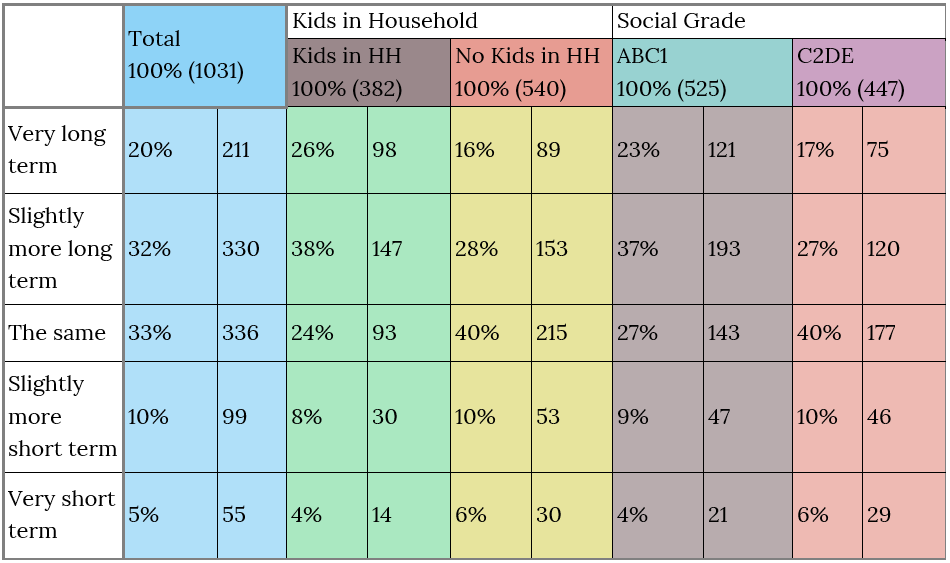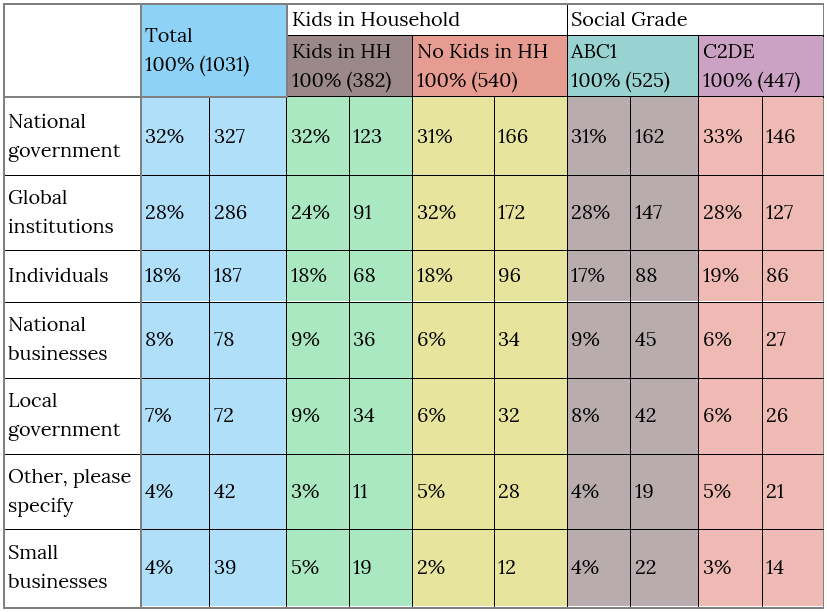Have the cost-of-living and the climate crises made people think longer-term?

Opinion: Strategy Leaders
It appears global forces are reshaping our behaviours and preferences, and businesses will need to adapt their brand strategies alongside them.
The intricate web of current economic challenges have left few unscathed, prompting us to ponder how our changed circumstances are shaping our attitudes, decision-making, and behaviours.
As a parent with a mortgage, the financial downturn has naturally weighed on my mind. However, looking at it as a media strategist, what is interesting is the interconnection of complex and unpredictable factors that play into the situation: climate change, geopolitical instability, energy security, and the responses by our political leadership to all three.
So, what will the outcomes be in terms of a nationwide attitudinal shift?
I think we’re already beginning to see these manifest. For example, there’s early evidence that we are increasingly adopting a longer-term outlook on certain aspects of our lives.
Hard lessons have made us pay closer attention to the factors that will impact our mortgage rates, energy bills, petrol costs and grocery budgets — and we’re better able to connect the dots between global events and our bank accounts.
Naturally, this transition could have a profound impact on consumer purchasing behaviours, thus necessitating an analysis of the effects on marketing strategies and messaging.
Forced to think differently
In anticipation of writing this column, I posed a few questions to a Global’s Work Shop Play nationally representative panel of 1,000 UK consumers. First, “In light of the cost-of-living and climate crises, are you thinking more short-term or long-term with regards to what you buy?”
The results show that over half of respondents are thinking longer-term, with 20% looking “very” long-term, and 32% “slightly more”. This compares to a third (33%) maintaining the same behaviour and only 15% looking shorter-term.
For those with children in the household, long-term thinking rises by several percent (see chart). There are also some shifts depending on social grade, with ABC1s taking a longer-term view.

Looking for leadership
I also posed a question to the panel asking who consumers felt had the greatest responsibility for solving the climate crisis. 32% of respondents suggested national government should take overall responsibility, followed by global institutions — such as the UN — with 28%. But, interestingly, a fifth (18%) recognised their personal responsibility. By comparison, only 8% thought national businesses should take overall responsibility.

Further insights into our changing attitudes
Before we reach any conclusions to these findings, there is additional research to draw upon to help provide a more rounded view of how complex national and global factors might be impacting the lives, attitudes and behaviours of ordinary people.
For example, a recent Meet the 85% study with Saatchi & Saatchi, ‘What the F*ck is Going On?’ records a host of grievances that people harbour, along with different ways of seeing the depth of the interconnected problems the UK faces.
The grievances include: no one being in control; a sense we’re going backwards; that we’re a dog eat dog country; we’re angry and divided; that pride is slipping away; the system is rigged against ordinary people; and people are tired of false hopes.
Interestingly, the report states: “[These are] not short-term, they are not superficial and they will not simply go away with a lucky bounce in the economy. They are deep-seated, structural and require real attention because they are making life in this country more and more difficult.”
Implications for strategy
Pulling at these different threads, I believe we’re beginning to see new strategic opportunities for brands to help meet our complex and changing needs — all of which require businesses to look at a much wider picture. Brands need to think IMAX rather than small screen. Here are some top-line implications:
Firstly, as (hopefully) the research highlights, asking questions and talking to people outside of London is fundamental to understanding the current situation. Understanding the vast amount of data businesses have is also critically important. Widening the field of vision and using a mixture of Science and Heart is where the nexus of strategy should be coming from.
Secondly, there appears to be a shift in thinking towards the longer-term with this being even more so for those with children. This is understandable, as from my own experience I have two small human beings telling their grandparents to consider the implications of their purchasing on the planet. Les Binet and Peter Field have been telling brands to be less short-term and more long-term for a while now, and it appears some consumers are following their advice. As much as shareholder value and the next quarter is important, brands need to keep one eye on the one-year, five-year and 10-year plans too.
Thirdly, there is the classic saying that “all models are wrong, but some are useful”. The models we have can be useful to help us understand the past, but as we help brands navigate an unstable economic and climate impacted future (as well as a fragmenting media landscape), establishing an innovation framework and learning agenda is mission critical.
Finally, people don’t expect the climate crisis to be primarily solved by businesses. This doesn’t mean reigning back from sustainability strategies, but does suggest that those brands that can offer consumers a great product, at the right price, with a low impact on the planet, will do well in the future.
Of course, these are just the tip of the (melting) iceberg, but as we learn more — and as additional research tells us about our changing behaviours and attitudes — we’ll be able to connect more of the dots and develop strategies that do what is required of the moment: genuinely helping people navigate a world in turmoil, and giving them hope for a better future.
 Simon Carr is chief strategy officer at Omnicom media agency Hearts & Science
Simon Carr is chief strategy officer at Omnicom media agency Hearts & Science
Strategy Leaders: The Media Leader‘s weekly bulletin with thought leadership, news and analysis dedicated to excellence in commercial media strategy.
Sign up for free to ensure you stay up to date every Thursday.




